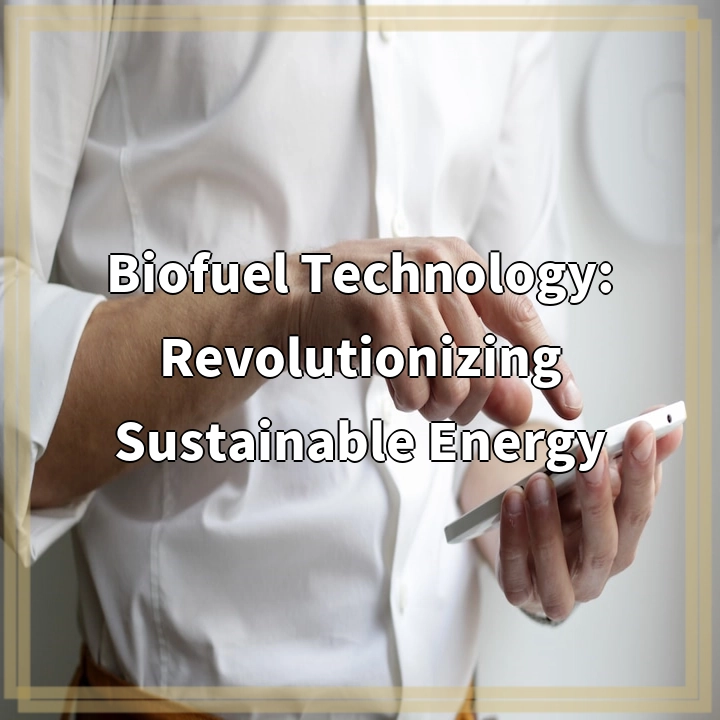Physical Address
304 North Cardinal St.
Dorchester Center, MA 02124
Physical Address
304 North Cardinal St.
Dorchester Center, MA 02124

Biofuel technology is transforming the landscape of sustainable energy by harnessing renewable sources derived from organic materials. These biofuels, obtained from crops, agricultural waste, organic food waste, and algae, offer an alternative to finite and non-renewable fossil fuels like coal, oil, and natural gas. Through the process of converting biomass into liquid or gaseous fuels, such as ethanol, biodiesel, and biogas, biofuel technology provides substitutes for transportation, heating, and electricity generation.
One of the key advantages of biofuel technology is its potential to reduce greenhouse gas emissions and combat climate change. Biofuels have a lower carbon footprint compared to conventional fossil fuels. When biofuels are burned, the carbon dioxide released is offset by the carbon dioxide absorbed during the growth of the biomass feedstock. This carbon neutrality makes biofuels an environmentally friendly choice.
As the demand for biofuels increases, it raises concerns about land use competition with food production and natural ecosystems. Large-scale cultivation of biofuel crops, such as corn, soybeans, and palm oil, can lead to deforestation, habitat loss, and biodiversity degradation. To address this, sustainable land management practices are crucial. Responsible land use, protection of natural habitats, and avoiding deforestation can strike a balance between biofuel production and sustainable land management.
The biofuels industry has faced criticism for diverting agricultural resources away from food production, potentially contributing to rising food prices and global hunger issues. To mitigate this dilemma, diversification of feedstocks is essential. Investing in research and development for alternative feedstocks, such as algae, agricultural residues, and dedicated energy crops, can ensure a sustainable and diverse biofuel supply. By reducing dependency on food crops, conflicts between food and fuel production can be minimized.
While biofuels offer environmental benefits, certain production methods can have unintended consequences. Monoculture plantations for biofuel crops can deplete soil fertility, increase water usage, and require intensive pesticide and fertilizer application, leading to environmental degradation. Implementing sustainable farming practices, such as crop rotation, agroforestry, and organic farming, can mitigate these issues and enhance the overall sustainability of biofuel production.
Continued research and development are necessary to improve the efficiency and cost-effectiveness of biofuel production technologies. Enhancing biomass conversion processes, exploring new feedstock options, and developing advanced techniques for biomass pretreatment and conversion are crucial areas of focus. Investments in research and innovation can overcome technological barriers, making biofuels a more viable and competitive energy option.
Addressing the challenges associated with biofuel technology requires a multi-faceted approach. By implementing sustainable land management practices, diversifying feedstocks, promoting sustainable farming methods, and investing in research and innovation, we can overcome these challenges and pave the way for a more sustainable and greener energy future. Biofuel technology holds significant potential in revolutionizing sustainable energy and contributing to a cleaner and more sustainable world.
If you’re wondering where the article came from!
#